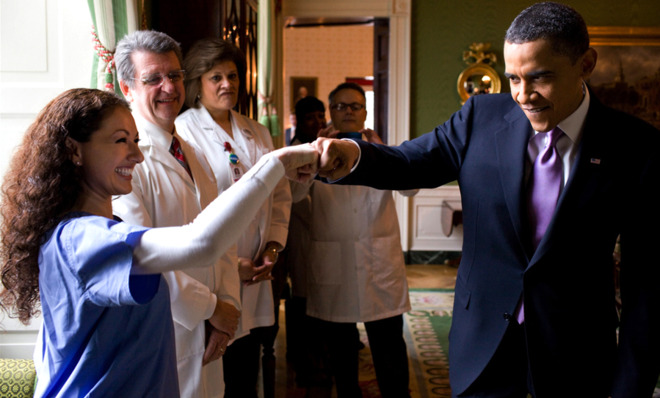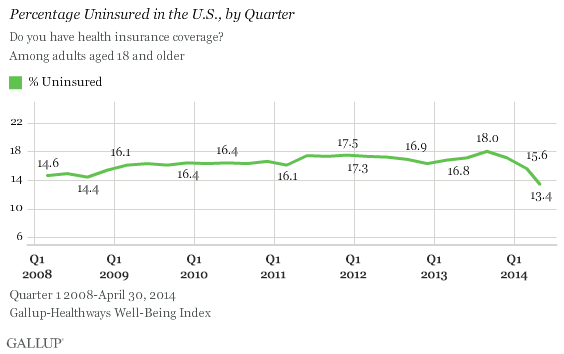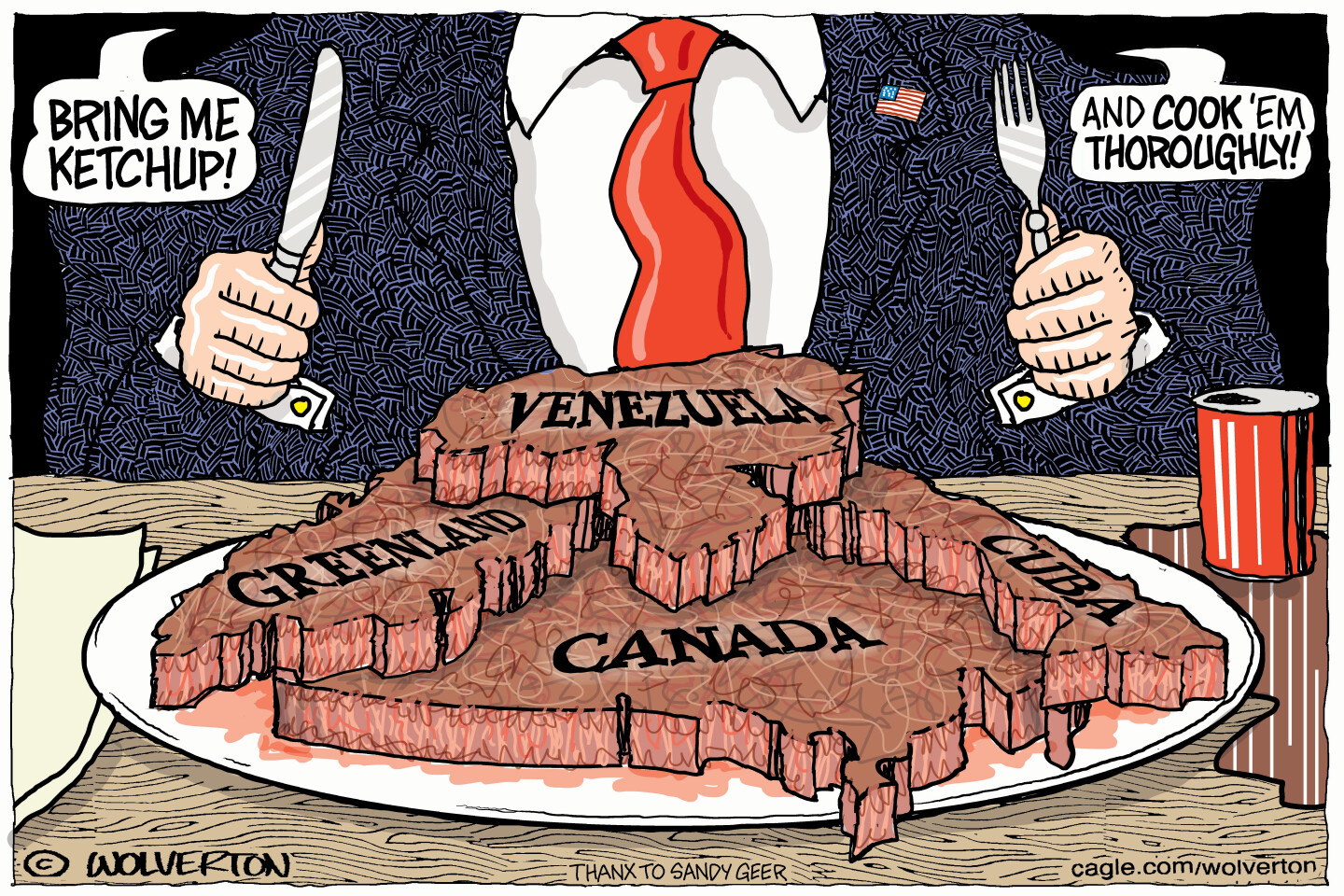This is the best sign yet that ObamaCare is working
Fewer Americans are uninsured than at any point since 2008

There's no denying that ObamaCare has had serious teething troubles. A broken website and multiple missed enrollment targets made for a difficult and messy rollout, leaving a president with some of the lowest approval ratings of his career and his party in serious danger of losing the Senate. But even if Republicans do take control of both houses of Congress in November, undoing the law just got a lot harder.
The important thing for ObamaCare's supporters is that the law has proved resilient to all of the angry shouting labeling it socialism or fascism, negative approval ratings, and Congress' endless repeal attempts. If it can survive, supporters say, it will prove its worth.
And now mounting evidence is starting to show that it is achieving one of its core aims — reducing the numbers of the uninsured substantially. This month, Gallup found the lowest ever numbers of uninsured people in the United States, with just 13.4 percent of those surveyed uninsured, down from 18 percent last year:
The Week
Escape your echo chamber. Get the facts behind the news, plus analysis from multiple perspectives.

Sign up for The Week's Free Newsletters
From our morning news briefing to a weekly Good News Newsletter, get the best of The Week delivered directly to your inbox.
From our morning news briefing to a weekly Good News Newsletter, get the best of The Week delivered directly to your inbox.

[Gallup]
And, as Jonathan Cohn notes, other polls, such as ones from the Rand Corporation and the Urban Institute, show much the same thing.
Of course, the real test is how the system changes in the long run: Will ObamaCare lead to higher or lower health care costs and premiums? Will insurance companies stick to the mandated spending levels on patient care? Will the employer mandate for full time workers result in less full time and more part time jobs? Too what extent will booming health care spending help the economy and create jobs? Nobody really knows the answers to these questions yet, and nobody will until the law has stuck around for a while.
And the relative success or failure of ObamaCare may be dependent on other factors, such as how future technology will change health care, whether immigration reform — which could make it easier for doctors and nurses from other countries to come and work in the United States — will be enacted, and whether Vermont's attempt to implement single payer health care will set an example for other states. These issues could define the health care landscape in the U.S. over the next generation.
A free daily email with the biggest news stories of the day – and the best features from TheWeek.com
In an ideal world, no government redistribution would be necessary to ensure access to health care. A mix of market and charity would fill all the gaps. But we don't live in an ideal world. We live in a real world, where people — entire families and communities — can fall through the cracks and suffer in their millions from preventable illness.
Whatever people may think of the political or economic uncertainties of ObamaCare, I think the expanded coverage is a big victory for basic human dignity. More people with health insurance means more sick or potentially sick people having access to health care — and particularly preventative health care, to prevent costly ailments like diabetes and obesity — without clogging up emergency rooms, and risking bankruptcy from unexpected medical bills.
John Aziz is the economics and business correspondent at TheWeek.com. He is also an associate editor at Pieria.co.uk. Previously his work has appeared on Business Insider, Zero Hedge, and Noahpinion.
-
 Political cartoons for January 8
Political cartoons for January 8Cartoons Thursday’s political cartoons include a well-done steak, a silenced protester, and more
-
 US nabs ‘shadow’ tanker claimed by Russia
US nabs ‘shadow’ tanker claimed by RussiaSpeed Read The ship was one of two vessels seized by the US military
-
 Avatar: Fire and Ash – third instalment feels like ‘a relic of an earlier era’
Avatar: Fire and Ash – third instalment feels like ‘a relic of an earlier era’Talking Point Latest sequel in James Cameron’s passion project is even ‘more humourless’ than the last